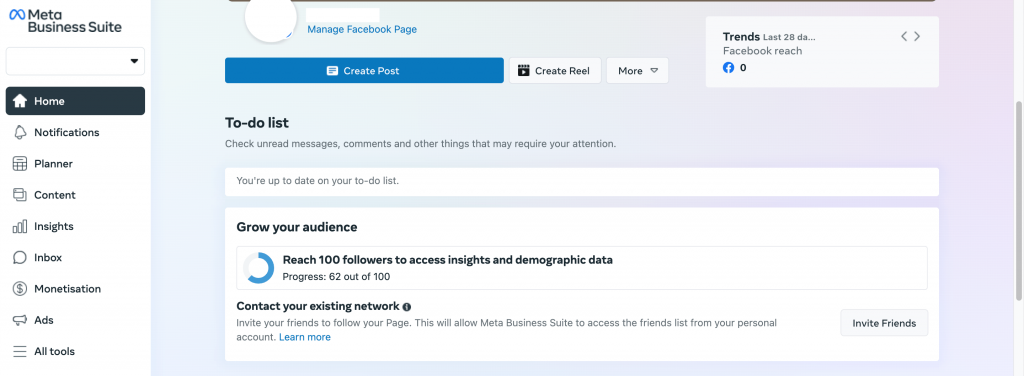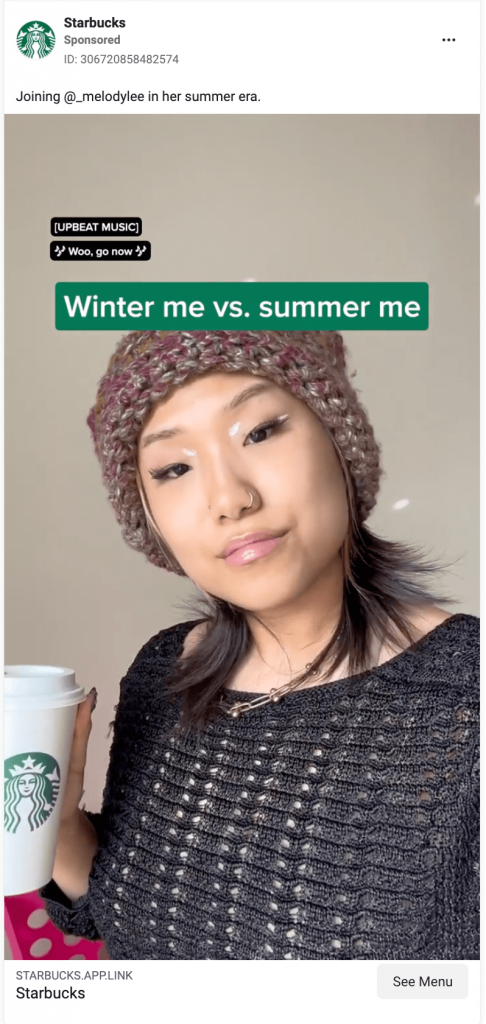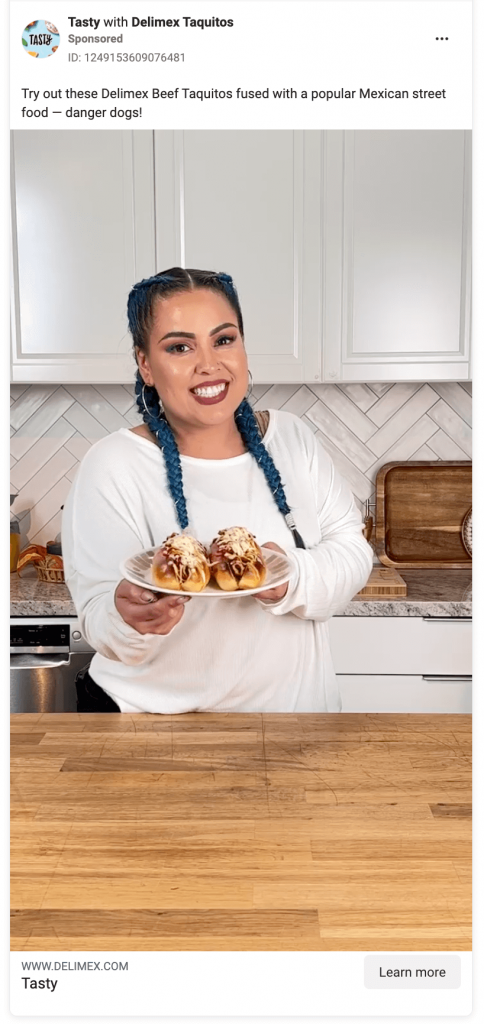Facebook Ads Target Audience: Your Guide for 2023
Find out how to reach the right people with Facebook Ads target audiences.
When we think of social media marketing, one platform invariably dominates the conversation – Facebook. With a staggering 2.98 billion monthly active users, Facebook is a goldmine for marketers who understand the potential of a Facebook presence.
A well-crafted Facebook marketing strategy can offer your brand opportunities to connect with audiences in a meaningful way.
Let’s take an in-depth look into the key components of a successful Facebook marketing strategy, practical tips, as well as some great examples of some exemplary tactics employed by top brands.
As the largest social media platform, Facebook represents an invaluable marketplace for your brand’s presence – and you are missing out if you ignore it.
Facebook remains the largest social media platform worldwide, and there are a few important reasons why Facebook should be a critical component of any social media marketing strategy:

A Facebook page acts as your digital “storefront”. It tells users who you are, what you offer, and how to get in touch with you. But a common mistake is thinking that simply having a page is enough – it isn’t. Optimizing your Facebook pages will help capture interest and provide value to your followers.
It’s important to review your page details, and content regularly. Keep followers updated with your latest news, images, products and offers, and information that is important and relevant to them. And don’t forget to make sure you fill in all the information fields too.
Use an engaging profile picture and cover photo, and set a user-friendly custom URL. Photos and images are really important for engaging your organic following and giving your page an identity, and don’t forget to utilize the CTA button! Guide your page visitors towards a specific action, such as ‘Contact Us’, ‘Shop Now’, or ‘Sign Up’ to your newsletter.
Lastly, Facebook verification might have recently become a Meta subscriber feature, but many users associate the blue checkmark that appears next to your page name with authenticity, and it reassures them that you are who you say you are.
With so many users on Facebook, it can be difficult to reach your ideal audience – and that’s why understanding how to define your target audience is important for your Facebook marketing strategy, whether through organic strategy or paid advertising.
Facebook’s Page Insights offer valuable information about your followers’ demographics, interests and activities, and you should use this data to create audience personas that inform your content strategy.
It all starts with defining your audience, and in order to do this, the minimum you should consider is:
By answering these simple but important questions, you’ll gain a better understanding of your audience in order to create a Facebook marketing strategy that keeps your audience at the center of all activity.
Go a step further, and develop an audience persona for Facebook marketing. This is a fictional representation of your ideal customer that is rooted in real data about your existing customers as well as your target market. Furthermore, it can help to define your content messaging and refine your Facebook marketing strategy to cut through the “noise” of the newsfeed.
Here are some of the Facebook audience insights you can track in Meta Business Suite:
Insights in Meta Business Suite is a valuable tool for businesses of all sizes. It can help you track your progress, identify areas for improvement, and make better decisions about your social media strategy.
Do you want to increase brand awareness, generate leads, or drive website traffic? Setting clear goals and objectives forms the backbone of your Facebook marketing strategy.
Be SMART (Specific, Measurable, Achievable, Relevant, Time-bound) about your objectives and set up yourmarketing KPIs to align with these goals. This way, you can track your progress and make adjustments along the way.
Facebook users are bombarded with content every day, so it’s important to create content that stands out and “stops the scroll” as much as possible.
By creating and offering a mix of high-quality content types – i.e.: images, videos, live videos, stories, and polls – you’ll keep your audience interested and engaged. Experiment with different formats in your Facebook posts to see what resonates best with your audience. Consider hosting live Q&A sessions, sharing behind-the-scenes videos, posting user-generated content (UGC), or running polls to get audience opinions.
When creating content as part of an organic strategy, it’s important to keep in mind that your goal is to attract new followers and build relationships with your existing audience. Ideally, your content should be informative, engaging, and relevant to your target audience and seek to cultivate dialogue and participation with your follower.
Don’t forget to use relevant keywords and hashtags to make your content discoverable. Help people find your content as much as possible!
Here are some additional tips for creating engaging content on Facebook:
A content calendar is effectively a roadmap for your Facebook marketing strategy. It helps you plan, coordinate, and schedule your content. By having a content calendar, you can ensure that you’re consistently sharing high-quality content that will engage your audience.
There are a few different ways to create a content calendar for Facebook marketing. You can use a spreadsheet, a project management tool, a dedicated social media management platform like Kontentino, or even Meta’s own Business Suite.
Whichever method you choose, make sure to include the following information in your content calendar:
Once you have created your content calendar, you can start scheduling your posts, and there are a few different ways to do this. You can manually schedule your posts on Facebook, or you can also use a social media management platform to schedule your posts across multiple platforms which helps to streamline the process and save you time – and importantly, free up your time to focus on engagement and strategy.
Tools like Kontentino and Meta Business Suite let you plan your content, schedule posts, and monitor their performance, all from one place.
Kontentino is a powerful social media management platform that offers a wide range of features and is great for businesses of all sizes. It’s especially well-suited for team collaboration.
Kontentino helps promote collaboration within teams, enhancing internal communication via its built-in commenting system for assigning tasks, tracking progress, and sharing posts.

Additionally, Kontentino offers a variety of user-friendly features including a post approvals, UTM tagging, and detailed analytics. Its automation capabilities such as automated post scheduling and AI writing assistant free up your valuable time to focus on the strategic aspects of your social media campaigns.
Meta Business Suite is limited to its platforms – Facebook and Instagram. It offers specific features, including scheduling posts, responding to messages, viewing insights, and overseeing your ads across both platforms. Within Meta Business Suite, you can manage your Facebook page and ads, while tracking performance to optimize campaigns.

Meta Business Suite can handle multiple accounts, while its group creation and management feature helps to maintain Facebook marketing strategies and your digital marketing goals.
The suite’s ability to generate insights into the performance of your Facebook business page and ads helps in effective decision-making, to help drive audience engagement on your business page.
Organic reach remains an important part of Facebook marketing – it builds authentic relationships with your audience. They feel less “sold to”, so are more likely to engage with your content. But the reality is that on such a large platform, organic reach can be limiting while you build your audience, and that’s where Facebook ads come in.

Effectively, Facebook ads are like a megaphone across a crowded room. They amplify your message so it reaches exactly the right people, and boost your content visibility with Facebook’s vast range of ad formats and detailed targeting options.
Ultimately, they achieve your marketing objectives, and that’s why they’re an important part of any Facebook marketing strategy.
Here are some tips for refining your audience for Facebook ads:
Remember, your goal is to drive traffic to your website, generate leads, or boost sales. Your ads should be targeted to your specific audience and should be super clear about what you’re offering. Make sure to use compelling and engaging visuals, and importantly, have a strong call to action (CTA).
This will help you reach more people, get more clicks, and improve your ROI. Need help refining your audience? Check out these insightful tips onFacebook Ads Target Audiences.
An important part of any strategy will be monitoring and analyzing the performance of your Facebook marketing efforts. Make use of Facebook Insights to track performance, understand what’s resonating with your audience, and adapt your strategy for better results.
Learning from the best in the business can provide invaluable insights. Let’s have a look at three brands who are nailing their Facebook marketing strategy: Here are three brands that have nailed their Facebook marketing tactics:
Starbucks uses Facebook to tell its brand story effectively, often featuring high-quality videos of their products, behind-the-scenes looks into the coffee-making process, and interesting UGC content from a wide variety of influences such as artists, climbers, and skateboarders! This approach helps Starbucks connect with their customers on a personal level and fosters a strong sense of community, which blends the real-life experience well with their digital marketing.

LEGO does a fantastic job of combining product promotion with community engagement. Their Facebook page is a vibrant mix of product launches, user-generated content, and interactive posts that encourage fans to share their own LEGO creations. The result is a loyal and active community that is passionate about the brand. LEGO understands the importance of building a community as a focus of their Facebook content strategy, as well as actively encouraging engagement on their Facebook page with savvy yet simple tips and hacks – such as this one for their Brick Separator!

Mastering the art of short, compelling video content, BuzzFeed Tasty reels viewers in with easy-to-follow cooking videos that make even the most complex recipes seem achievable, and great kitchen hacks to make life easier. With millions of views and shares, Tasty’s videos are a testament to the combined power of engaging, shareable organic and paid ad content. Buzzfeed Tasty knows the power of Facebook ads. Note the short copy – it’s all about the video content here, as they understand their audience’s expectations.

So, there you have it; from setting up an optimized Facebook Business Page to creating engaging content, developing a content calendar and using a scheduler to help manage your content, to utilizing Facebook Ads – every step counts towards a successful Facebook marketing strategy.